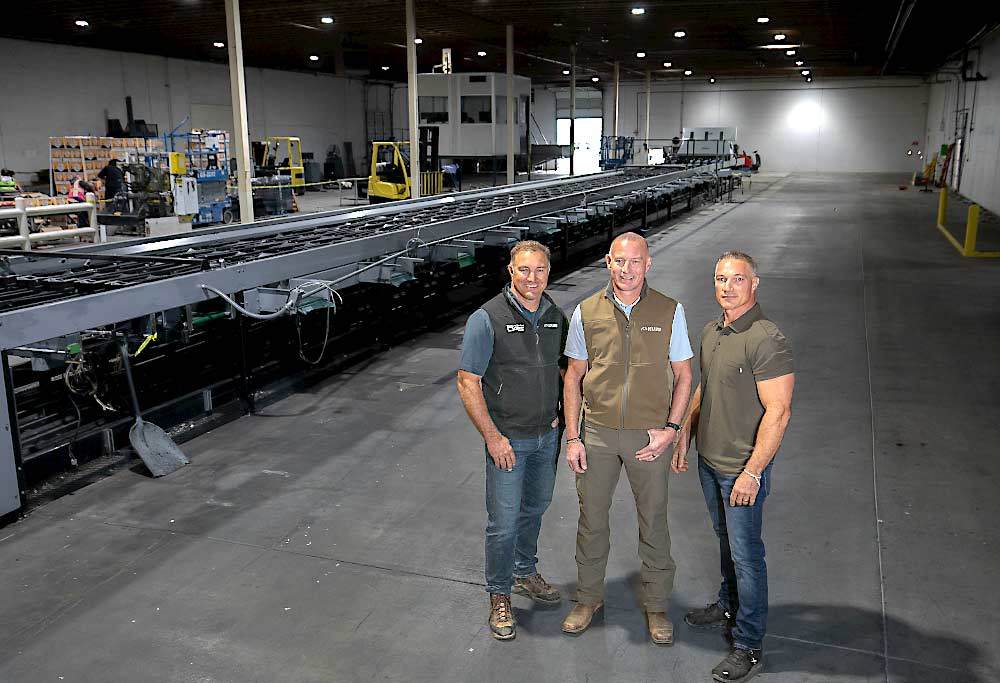
Brothers John and Bill Douglas never envisioned founding a fruit company together.
But the young peach orchards they planted in Washington’s Columbia Basin were coming into production, and none of the Yakima Valley packers wanted the fruit.
“They were kind of thrust into the packing business,” said Holly Douglas Wilson, John’s daughter, who agreed to spend a college summer running a rented apple line in Pasco to pack the peaches. “It bruised every piece of fruit, and I went home bawling and called Dad and Bill and said, ‘This just isn’t working.’”
Guess what was built before the next harvest? Douglas Fruit.
“A lot of businesses get started kind of by accident. You see a need and go from there. There wasn’t a big plan we had to do this, but the more we got into it, we realized that if we had this much ground, we needed our own packing facility,” recalled Bill Douglas.
And starting a fruit company required more people.
“I hired John’s daughters, because I knew they were competent girls,” Bill said. “It was tough for all of us, learning all the things they had to know, but they did a wonderful job of growing the business and keeping it profitable.”
Holly and her sister, Jill, were in their early 20s at the time.
“We were the newbies, with lots to learn, and we did,” Holly said. “Delivering high-quality product year after year sustained the company, and it was a huge group effort.”
That accidental business turns 40 next year. Today, it’s run by Bill’s sons — David, John and Pete — and the reputation for quality on which the company was founded remains integral to the operation. As does the passion for peaches and nectarines — Douglas Fruit now grows the majority of the state’s soft fruit.
That continued commitment to quality, diverse and innovative farming practices and their generosity with industry service and collaboration are why Good Fruit Grower’s advisory board has selected the Douglas family as the 2023 Growers of the Year.
“They are plain-spoken, practical, down-to-earth and compassionate people with such great business sense,” said Mike Taylor, vice president of sales at Stemilt Growers, the Douglas’ marketing partner, and a longtime family friend.
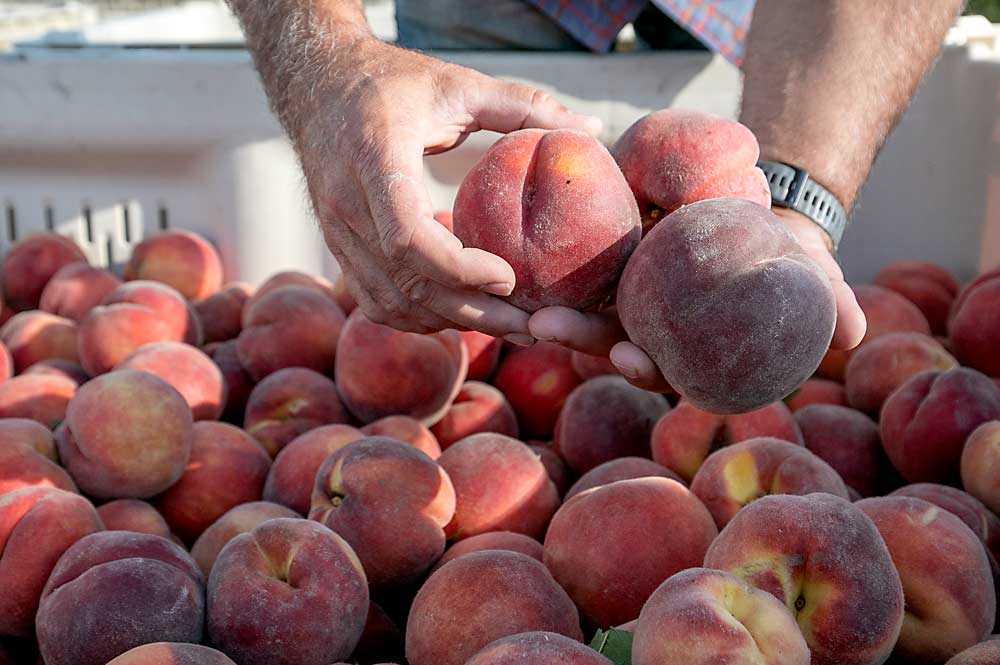
Good ground, good people
Douglas Fruit may be a relatively young fruit company, but the Douglas family’s orchard roots run deep.
Bill and John’s grandfather first planted orchards in the Yakima Valley. Their dad, Foster Douglas, who grew apples, pears and stone fruit in Wapato, would be proud to see the family still in the fruit business.
“I’m sure he would be amazed. I’m amazed,” said John, commonly called “Big John” in the family to differentiate him from his nephew. “We just kept going along, and it was never an option to get smaller.”
He knew he wanted to follow in his father’s footsteps and bought 25 acres from him after college, to start. Meanwhile, Bill set off on his own to build a career in the concrete and asphalt business.
Then in the early 1980s, John approached Bill about partnering on some new orchards in the Columbia Basin.
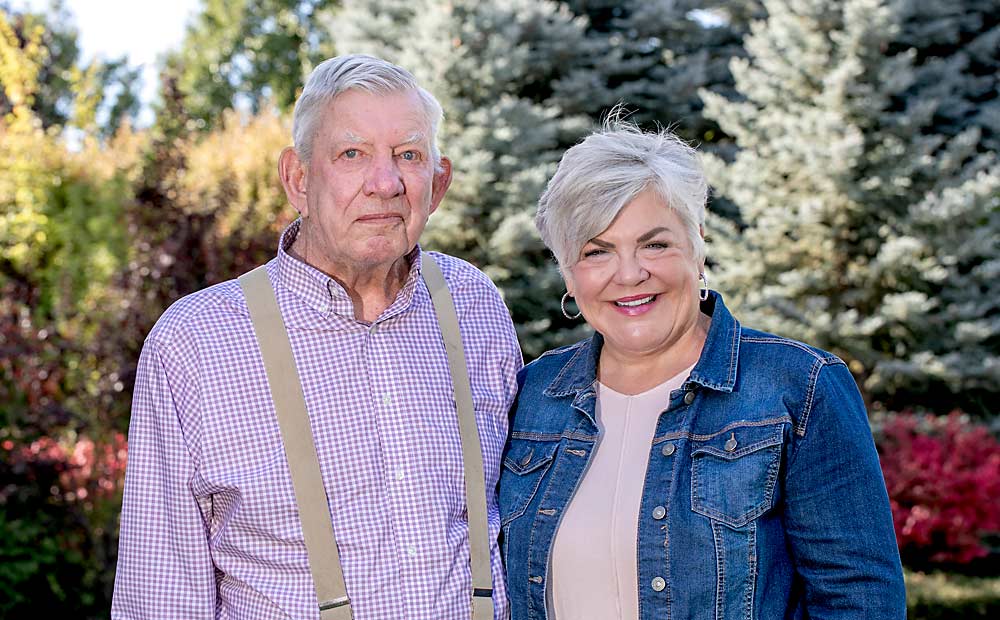
“My brother had the best eye for land and what would work for orchards,” Bill said. “The story I always heard was John and Dick Conrad were looking for good pheasant (hunting) ground, and John just felt it was good land and good water and a good area to invest in orchards — and he was right.”
Then, they just needed the people.
John tapped one of his young orchard managers, Octavio Torres, and a Douglas family friend just graduating from WSU with a horticulture degree, Rick Orozco, to run the new farms. Eventually, they became partners in the orchards.
“I was lucky to have good people, because I had my own farms to run, too,” John said. “We couldn’t have done it without good help.”
And the new packing plant? With Holly in a sales role, it went through a couple of managers in as many years, until Bill called up his niece, Jill, and asked her to forgo a master’s degree to run the plant.
“I said, ‘I don’t know anything about business,’ and he said, ‘I can teach you everything you need to know about business because you know how to deal with people,’” Jill recalled.
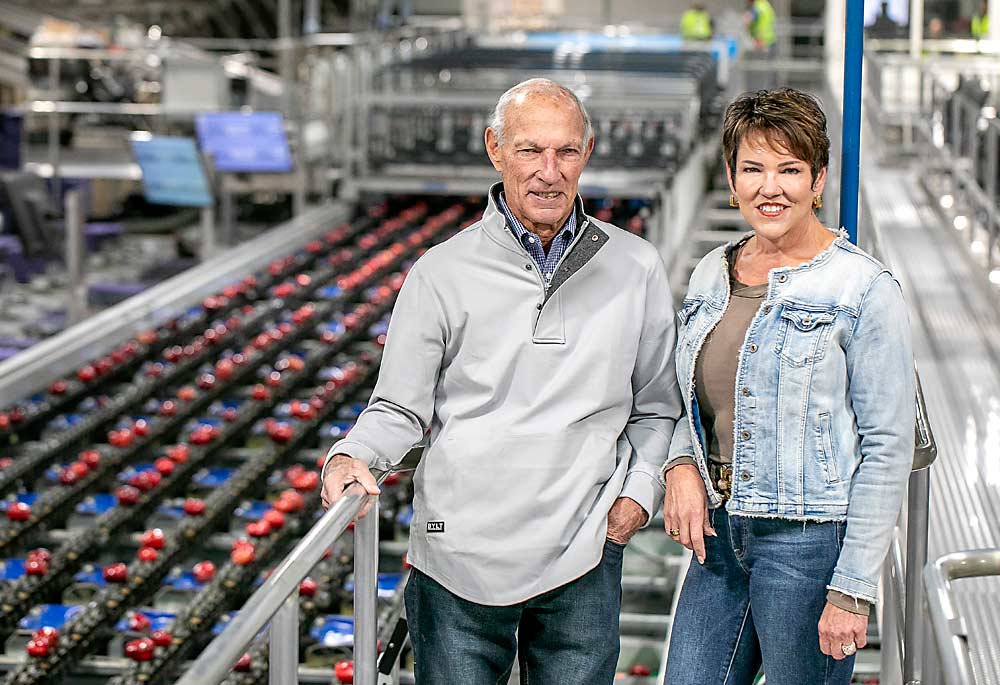
Empowering people
The confidence that their father and uncle had in them helped them grow quickly into the jobs required.
“That was so pivotal to our learning, and when things got tough we could call them up,” Holly said. “It created this environment of, like, if they don’t believe that they need to be down here, I can believe that I can do it.”
And they did.
When David decided to join the company in 1998, after a few years with Yakima Fruit, he was looking forward to the opportunity to work with his dad.
“But Jill and Holly were running the company, and I worked for them. Dad’s role was just to help guide,” David said. “Something that people may not know is that neither Bill nor John ever took a salary from this company. They started it, they brought their kids into it, and transitioned their ownership.”
It’s fair to say 1998 was not an easy time in the fruit industry.
“I’m glad I stuck it out,” he said of a career that started on the sales desk and moved to orchard work as a fieldman before he went back to school for an MBA. When he returned, he assumed more of a leadership role in partnership with Jill.
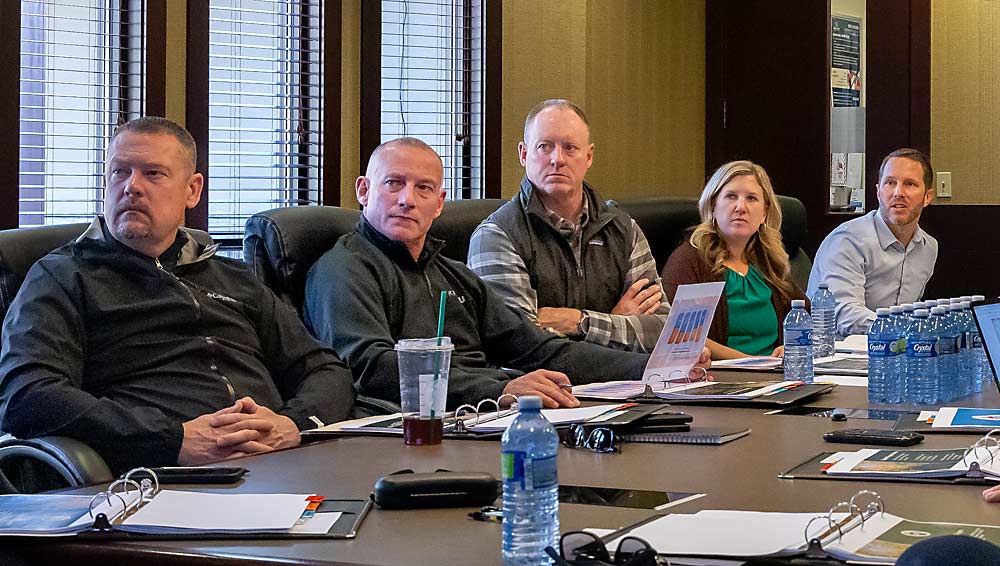
“We had a similar view of how we wanted the business to run, and it was a great partnership for a lot of years,” David said.
And having Bill — who is widely regarded for his business acumen across the industry — in that senior leadership role proved invaluable for the young company, and for the industry overall, according to family friend and business partner West Mathison, president and CEO of Stemilt Growers.
Bill grew up on a farm, understanding the “entrepreneurial spirit and grit growers must have,” then earned an MBA and became a seasoned businessman outside of agriculture. “He brought a lot of insights and wisdom,” Mathison said, recalling the impression Bill made on him as a college kid, tagging along with his grandfather at meetings. “He’s able to draw upon all the wisdom in a concise way that I just found really profound.”
Jill took a similar approach when her cousin, Pete, began working with her.
“I loved working under Jill,” he said. “She was a great mentor and she let me learn in a trial by fire sometimes.”
John, meanwhile, graduated from Cornell University with a degree in ag business management in 1998. Then, his dad cosigned the loan so he could plant his first orchard a year later.
“I learned from the ground up,” John said of turning 120 acres of open ground into apple orchards. Then in 2000, he planted his first 200 acres of stone fruit. Big John, Orozco and Torres were “all really good mentors when I was getting started farming,” he said.
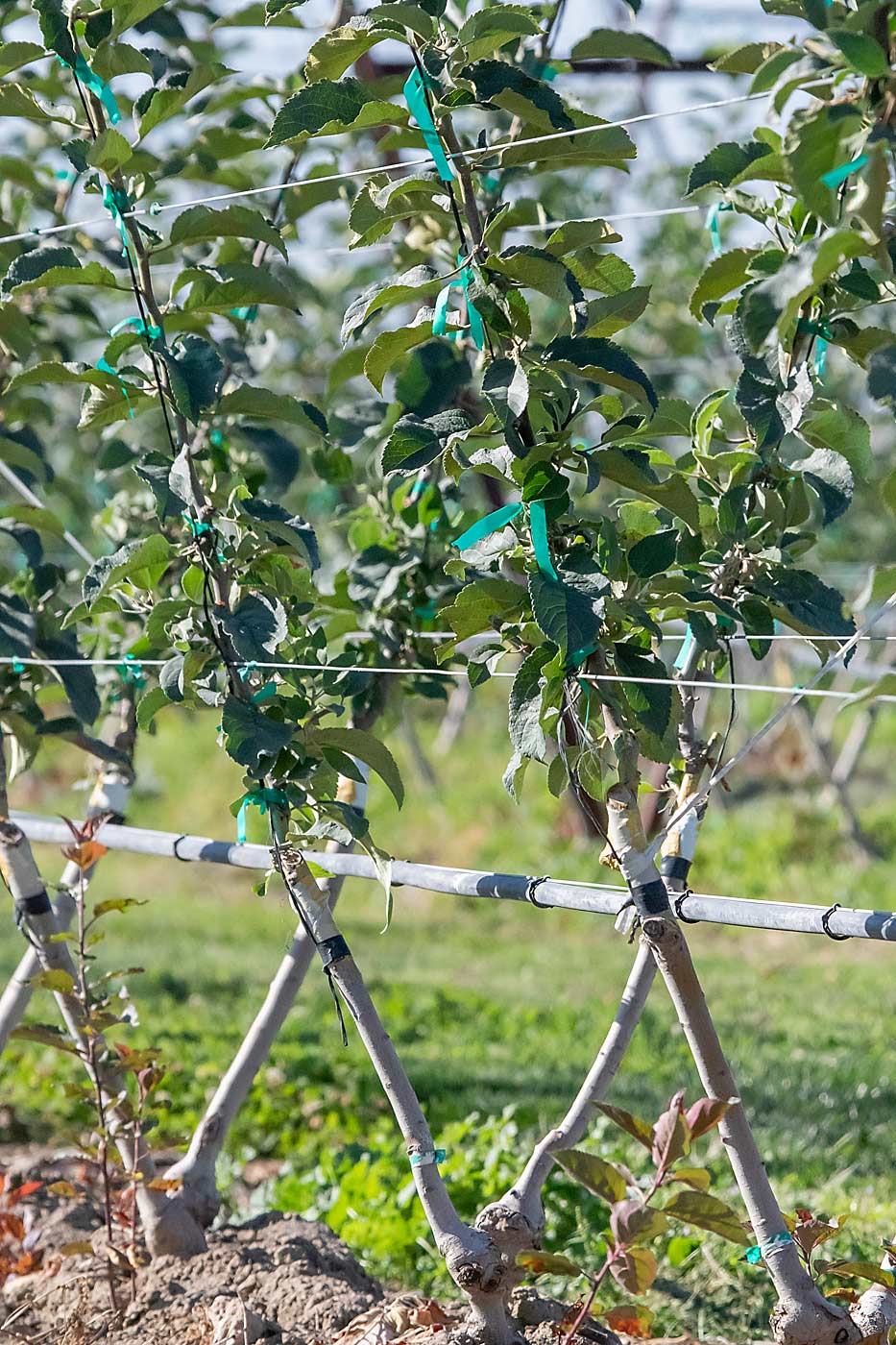
Quality first
While Bill’s insight served as a guide, it was Holly’s charisma that built the company’s relationship with customers.
“It was a different time back then, a time for salesmanship, and she was one of the best,” Mathison said, adding that he learned a lot from her.
Breaking into the fruit sales industry, especially as a young woman, wasn’t easy, Holly recalled. But she found opportunities and built relationships. The timing of the family’s orchard expansion aligned with the first wave of new apple varieties, so those early Fujis and Braeburns and Pink Ladies gave them an advantage as well.
“The whole thing I sold was quality,” Holly said. “Of course, I was only able to do that because Dad and Rick Orozco and Octavio Torres (and outside growers as well) delivered the product. They did everything so I could deliver the product I was preaching. They made my job easy.”
But by the mid-2000s, she could see the industry changing, and she realized that partnering with a larger sales desk would position the company well in the industry consolidation to come. Stemilt took over sales and marketing for the company in 2007, and she retired.
Taylor praised the Douglas’ “bold moves” in taking their stone fruit program organic to carve a competitive niche away from California, and how the family’s quality-focused mission aligned with that of Stemilt.
“It’s an easy business to be in if you want to pick things before they are ready. But if you want to maximize the consumer experience, you have to be on that edge,” Taylor said. The Douglas family “makes a really strong team and they bring that execution.”
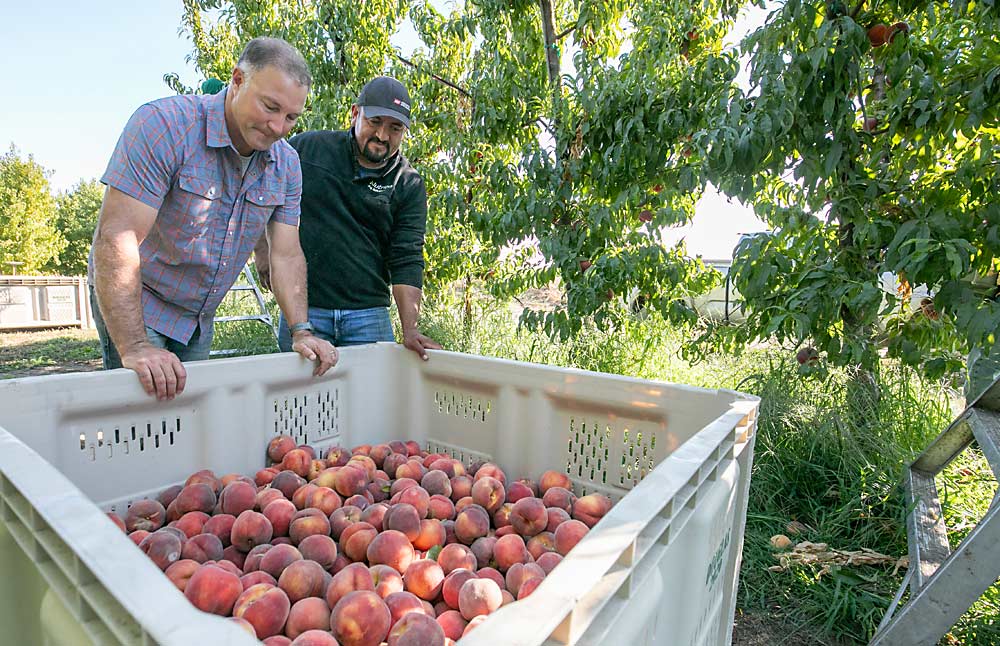
Looking ahead
The partnership with Stemilt marks, in the family’s mind at least, the dawn of a new era. “The girls,” as they still refer to Jill and Holly, led the business through its scrappy era of growth into stability. Around the same time of handing the sales to Stemilt, David stepped into a leadership role with Jill, and Pete, the youngest Douglas brother, joined the family business via the Stemilt sales desk before taking over management of the plant.
Now, since Jill’s retirement in 2020, it’s “the boys” leading the company and trying to figure out how best to position it for the era ahead.
“Our intention is to remain a family business and position our farms and storage and packing business so we have the right mix of fruit, and we are running as efficiently as we can to deliver fruit that’s attractive to a strong sales group in Stemilt Growers,” David said. “We work hard to reinvest in our orchards and facilities so we can survive on ever-shrinking margins.”
A new partnership with the Munson family, neighboring growers in the Tri-Cities area, announced this fall, will bring apples from over 800 of its acres to pack at Douglas and sell through Stemilt. The move helps to maximize their facilities, David said, and the family owners have shared values.
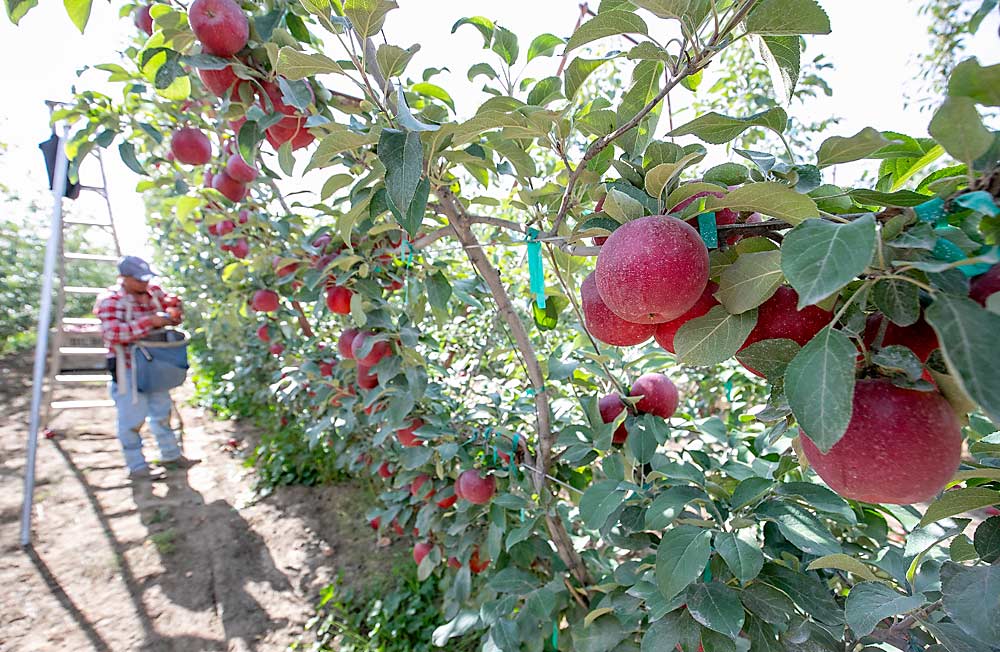
The Douglas brothers learned from their father, uncle and cousins how to enjoy working with family, they said.
“At the end of the day, it’s hard to run a family business unless you can get along with your partners,” Pete said. “We’re business partners and brothers, but we happen to be friends, too.”
As for the next generation, David, John and Pete each have three children.
“We’ve talked a lot about succession planning, and each of us wants to have the opportunity for the kids to come into the business if they want,” David said.
To that end, they outlined a family employment policy well in advance.
“We’re operating under the assumption that they’ll go to college, and then they can’t come work here directly. They need to work a few years for somebody else,” he said. “We’re also not going to create jobs for them — there has to be a need or a role for them to be hired for.”
Laying out those expectations early helps them all be on the same page, Pete said, and make sure the next generation only joins the business “if they have a passion for it.”
—by Kate Prengaman
Sister act
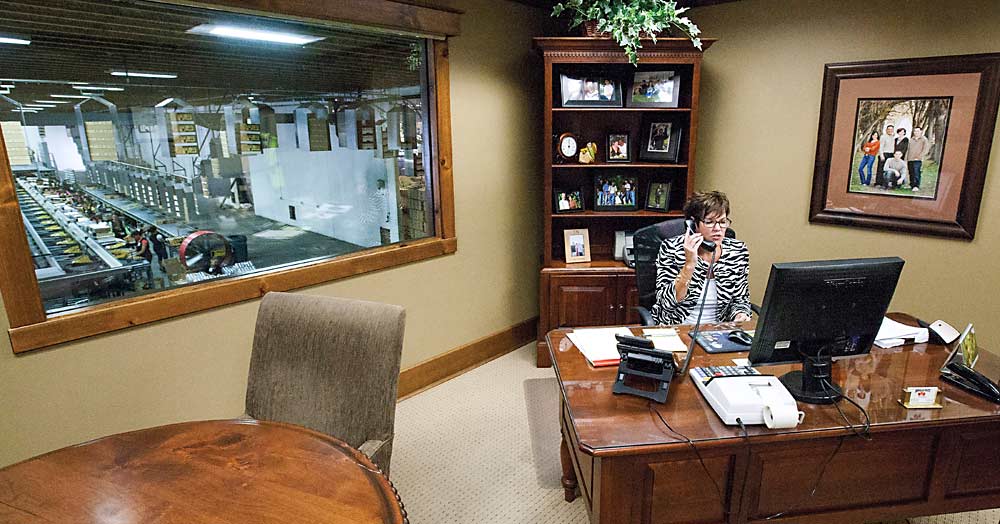
Growing up, Jill and Holly Douglas never envisioned joining the fruit business with their father. Even though, like orchard kids everywhere, they were glad to pick up seasonal jobs at Yakima Valley packing houses and, eventually, spent college summers at the fledgling Douglas Fruit, packing fruit and selling culls at a roadside stand in Pasco.
“It was just a summer job,” Jill recalled, adding that her dad was on the traditional side, raising his daughters with a strong work ethic but not expecting them to follow in his footsteps.
“It’s interesting that Bill would ask us. How did he know we could do it?” she mused. “But that’s Bill Douglas’ style. He finds the right person for the job, and he lets you do it and teaches you as you go.”
Holly said most people in the industry probably didn’t believe that she and Jill were running the company from day to day in those early years, with weekly check-ins from Bill and Big John. In hindsight, she can hardly believe it.
“It’s still so amazing to me that Bill and Dad truly gave us autonomy from Day One,” she said. “I was handed an opportunity, and I took it and ran with it. I knew we would have to work hard to beat people.”
Jill agreed: Their desire to prove themselves to everyone who doubted them paid off.
“Holly and I, we were the youngest women and sometimes the only women, and they gave us the opportunity to do it, and there was no way we were going to fail,” she said.
She recalled one grower who came into the office to ask her why he should take the risk to bring his fruit to two young women? Jill doesn’t begrudge him the question. Actually, she gives him credit for saying in her office what she believes many others were saying behind her back.
“We just looked at him and said there’s no way we were going to fail, and he brought us his fruit,” Jill said.
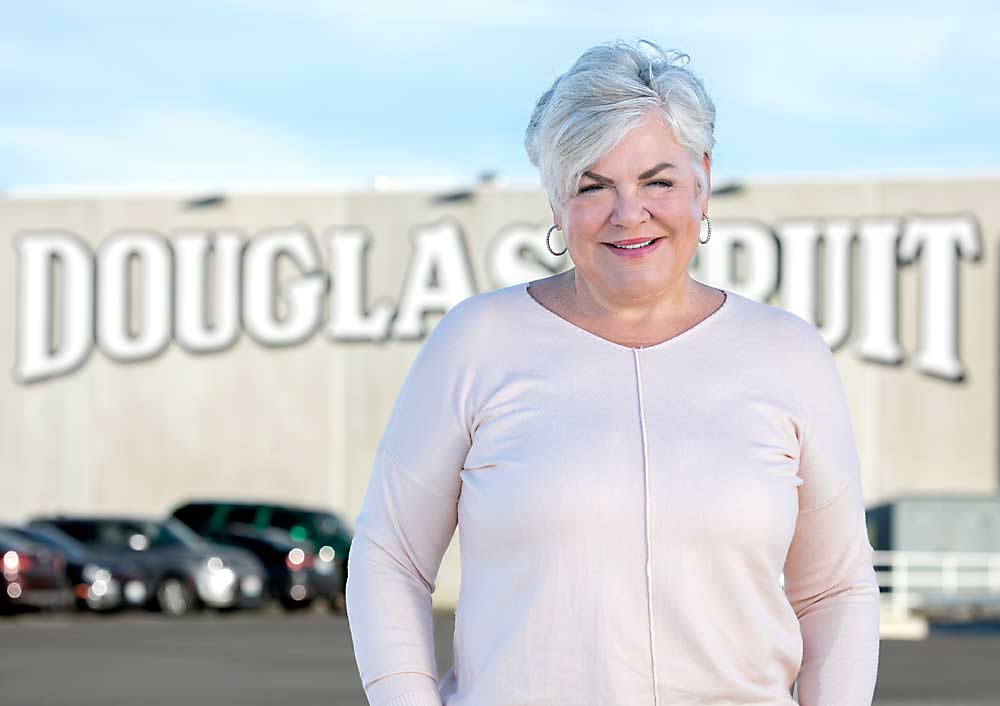
Working together was great. Both sisters are quick to proclaim they could never do the other’s job. Their dad did, too.
“He used to walk into my office every week and say, ‘I don’t know how you do what you do,’ and walk back out,” Holly recalled.
But what she did do was build up a customer list from zero — starting by selling through brokers and building direct relationships with smaller, independent grocery chains. Thirty-five years ago, there were a lot more of those, she added.
“I would be like a bottom fish. When customers were short something from somebody else, we’d pack up the short orders,” Holly said. That informed her commitment to relationships — even with competitors — for the rest of her career. “I created a lot of havoc and headache for the packing line and for Jill to deliver to my customers, but I was a driver on that. We can’t let our customers down or somebody else was going to step in and fill it.”
They were both tough, because they needed to be, Jill said.
“The most important thing to running a successful business is hiring the right people — I learned that from Bill. So, you have to be able to adapt, and I wasn’t afraid to make change and terminate people,” she said. “We always had that drive to be better and better, and we were competitive, we wanted to give our growers the best returns.”
That clear-eyed perspective made her an asset to the industry, too, as she served nine years on the Washington State Fruit Commission board, said commission President B.J. Thurlby.
“Jill and Holly were just the driving force, and it was fun to watch,” them build the company, he said. “I always got the vibe from them, from the whole family, that the fruit was the most important thing.”
—K. Prengaman

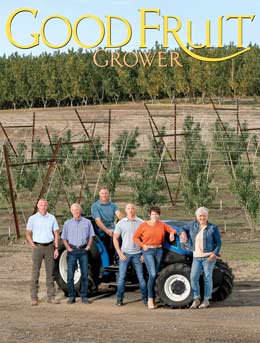
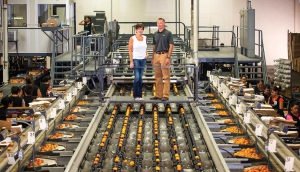
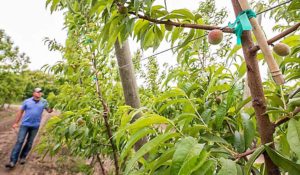





Leave A Comment